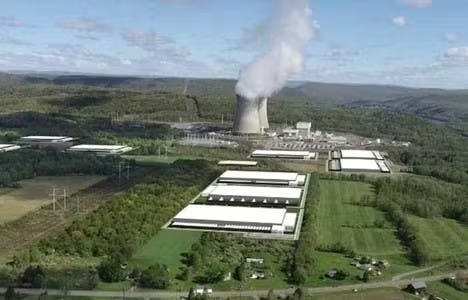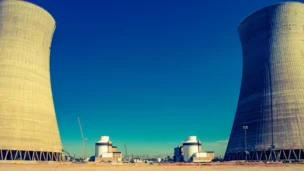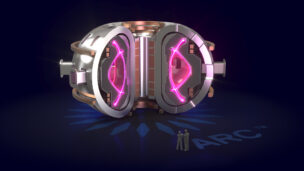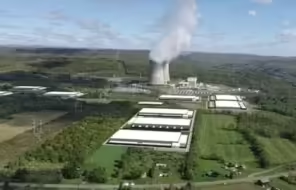There’s a fight brewing in Pennsylvania over the future of an AWS project that would hook a new data center directly up to the Susquehanna nuclear power plant.
The story so far: In March, AWS made waves when it announced it had purchased a $650M data center campus from Talen Energy that had a direct connection to the Susquehanna Steam Electric Station in Pennsylvania, one of the largest nuclear power producers in the US.
- The deal gave AWS the opportunity to use 960 MW of guaranteed nuclear power each year after a gradual ramp-up and an option to cap usage at 480 MW.
- It accounted for decades of operational potential, with two 10-year extension options built into the deal.
The trouble with the local energy powers-that-be started last week, when American Electric Power (AEP) and Exelon filed an official complaint with the Federal Energy Regulatory Commission (FERC). The two companies alleged that the project would impose additional costs on utility customers to the tune of $140M.
- AEP and Exelon asked FERC for a hearing on the project—and if a hearing was denied, they asked that the agency reject the interconnection outright.
- In addition to the potential cost for ratepayers, the companies took issue with the fact that the co-located AWS center would put strain on transmission infrastructure “paid for by transmission ratepayers,” giving AWS a free ride.
“Too many questions of fact remain unresolved in what is, by the filing’s own admission, an [Interconnection Service Agreement] that establishes novel configuration,” the complaint reads.
The counter: Talen Energy, which sold the data center campus and Susquehanna capacity to AWS in the first place, came back with the statement that the project wouldn’t affect energy transmission to customers—and therefore FERC shouldn’t have a problem.
“The factual recitations in the protest are demonstrably false,” Talen said in its statement. “The legal positions are demonstrably infirm. And nearly all the issues raised by Exelon and AEP are not subject to FERC oversight, because transmission is not implicated.”
The upshot: As AEP and Exelon put it themselves in their complaint, “Because there is no precedent for this type of ISA, it is not unreasonable to believe the industry may take guidance from the outcome of this proceeding, which reinforces the need for the result here to be both legally and factually sound.”
Put another way, the way FERC chooses to deal with this project could set the tone for how regulators deal with projects in the future that could take advantage of being co-located with a nuclear plant. It’s now in the agency’s hands to determine whether the complaint is worth a hearing.
Lead Reporter of Ignition





